Other Resources

Checklist for Headteachers
The checklist for headteachers contains practical steps every school can take to transform what children eat at school and how they learn about food. It highlights all the things which make a big difference to take-up and food culture in schools. Not all of the actions are the responsibility of the headteacher; they can be shared across the school. Some are best done by the school cook, business manager, senior management team, or your external catering company.
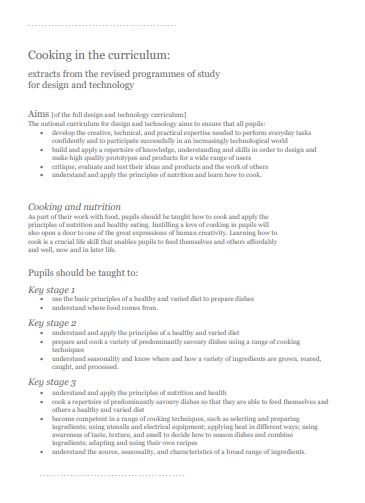
Cooking in the Curriculum
Since 2014, all schools has an obligation to teach cookery to all children up to the age of 14. The details of what they should teach are contained within the Design and Technology syllabus. The focus is on instilling a love of cooking in children and teaching them a repertoire of predominantly savoury dishes, so that they are able to feed themselves and others a healthy and varied diet
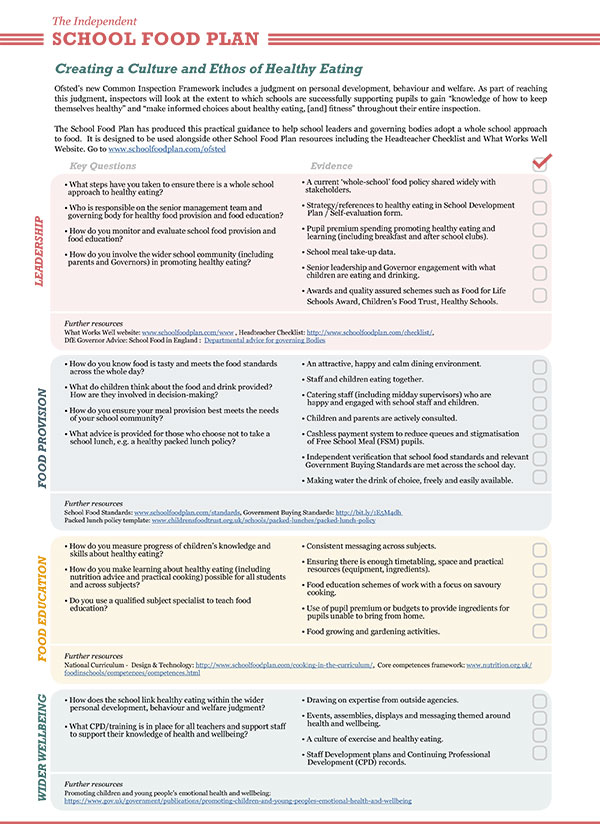
Ofsted Guidance
Under Ofsted’s Common Inspection Framework, inspectors assess how “children and learners keep themselves healthy, including through healthy eating”.
The School Food Plan has worked with many expert organisations to produce practical guidance to help school leaders adopt a whole school approach to food and create a culture and ethos of healthy eating. The guidance is designed to be used alongside other School Food Plan resources including the Headteacher Checklist and What Works Well Website.
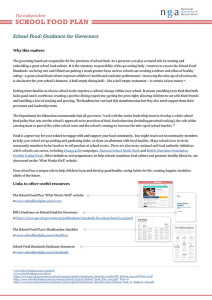
Guidance for School Governors
Governing bodies are responsible for the provision of school food and play a crucial role in creating and embedding a great school food culture.
The School Food Plan, in collaboration with the National Governors’ Association, has produced guidance to support governors in championing a whole school approach to food and help create a culture and ethos of healthy eating. It is designed to be used alongside other School Food Plan resources including the Headteacher Checklist and What Works Well website.
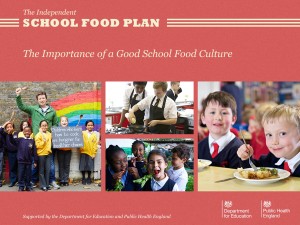
Training Resource: The Importance of a Good School Food Culture
Over 40 expert organisations have come together, to produce a free training resource to help all school staff understand the importance of a good school food culture and to support them to deliver improvements in pupil health and wellbeing. The resource is supported by the Department for Education and Public Health England. Download the Training Resource Kit.
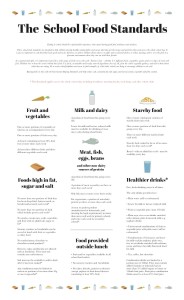
School Food Standards – Summary
As part of the School Food Plan, a new set of standards for all food served in schools was launched by the Department for Education. They become mandatory in all maintained schools, and new academies and free schools from January 2015. Download and print off this poster for your kitchen wall and school displays.
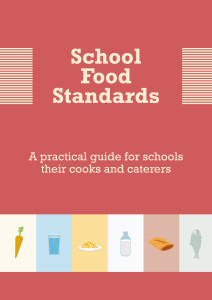
School Food Standards – Guidance
A practical guide for schools, their cooks and caterers. The guidance includes: checklists; advice on implementing the standards; portion sizes & food groups; top tips; standards for school food other than lunch; good procurement and where to go for more information and advice.
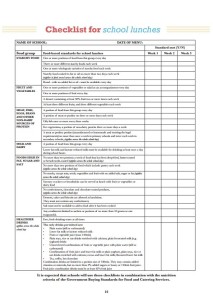
School Food Standards: checklist for school lunch
The school food standards specify how often different types of food and drink can provided. This checklist will help you to assess your school lunch provision against the standards.
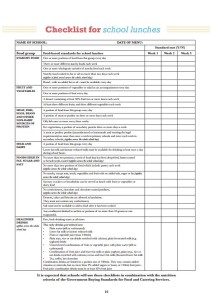
School Food Standards: checklist for school food other than lunch
The standards for ‘school food other than lunch’ apply to all food and drink provided to pupils during an extended school day (up to 6pm). This includes food and drink provided at breakfast and after school clubs or from vending machines, tuck shops or mid-morning break services.
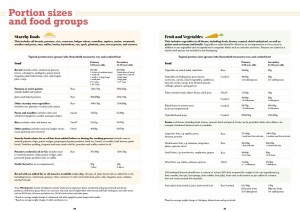
School Food Standards: portion sizes and food groups
Guidance on typical portion sizes is included in the guidance for schools, cooks and caterers. Download the poster for your kitchen wall
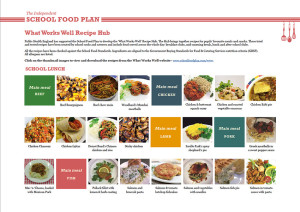
‘What Works Well’ Recipe Hub
The ‘What Works Well’ Recipe Hub brings together over 100 recipes for pupils’ favourite meals and snacks, all checked against the School Food Standards. These tried and tested recipes have been created by school cooks and caterers and cover food served across the whole day: breakfast clubs, mid-morning break, lunch and after-school clubs.
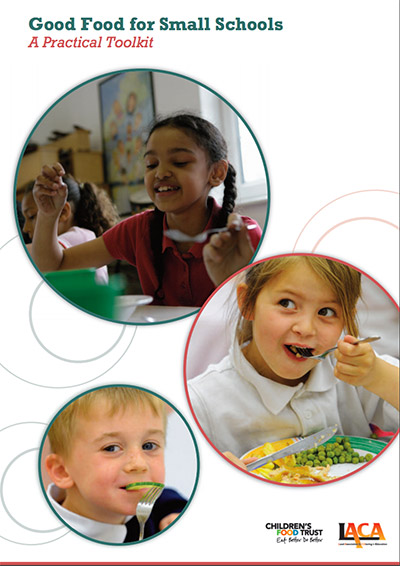
Small Schools Toolkit
Each small school is different – there is no “one size fits all” solution. This toolkit highlights examples of good what works well, shares innovative ideas and signposts to organisations able to help small schools to offer their pupils the best school food.
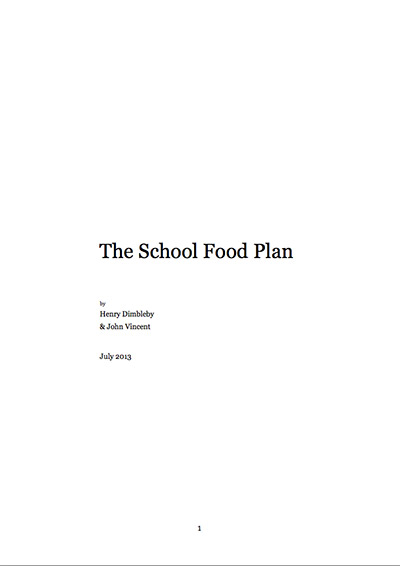
The Plan
The School Food Plan is exactly that – an agreed plan that has the support of the Secretary of State for Education and of the diverse organisations who are supporting headteachers to improve food in their schools. Published by the Department for Education in July 2013, it sets out 17 actions to transform what children eat in schools and how they learn about food.
